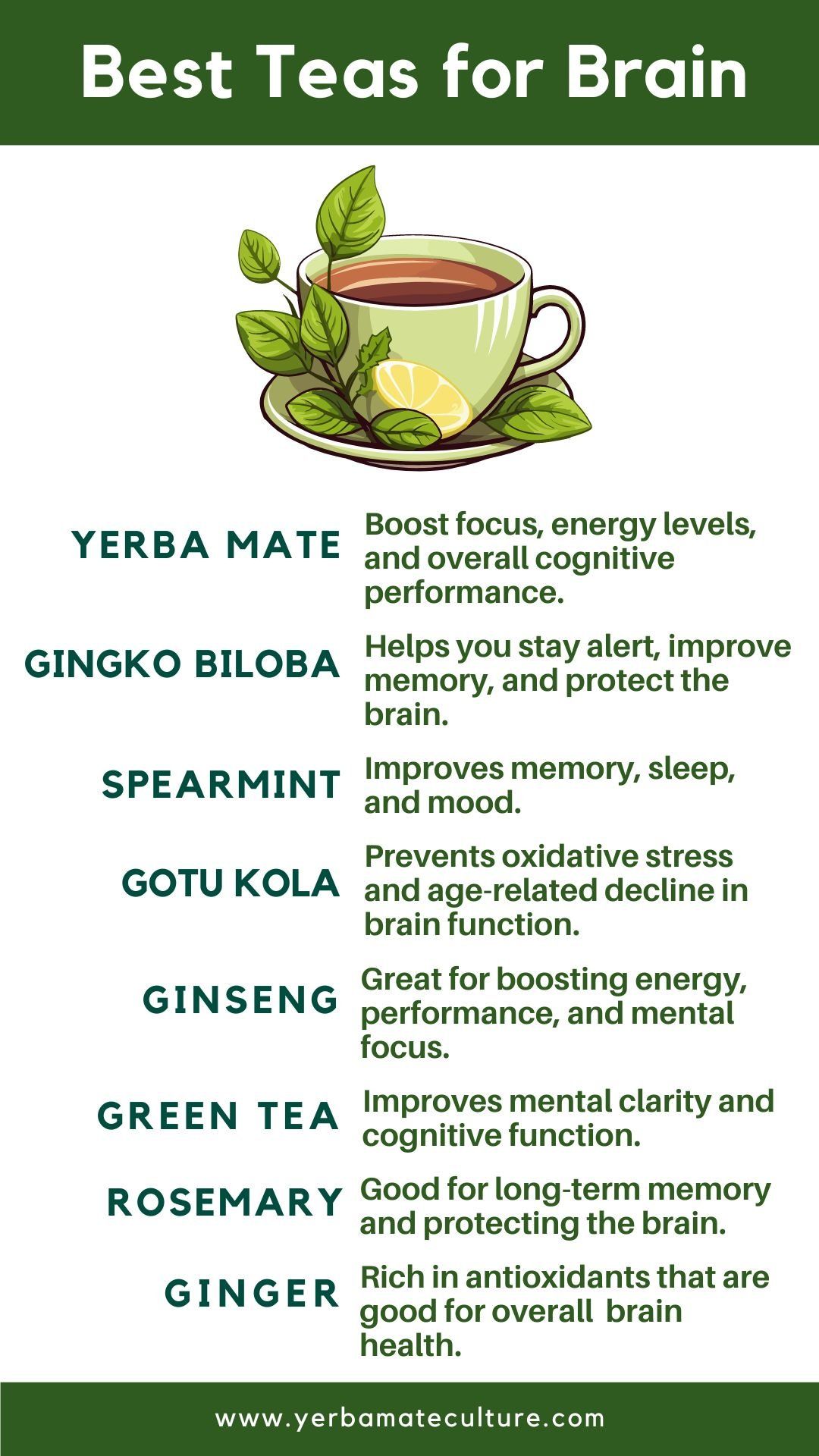The Ancient Elixir and the Modern Mind: Unraveling Green Tea’s Profound Impact on Cognitive Function and Brain Health
For millennia, nestled in the misty mountains and verdant plains of Asia, a humble leaf has been steeped, revered, and consumed, not merely as a beverage but as a conduit to clarity, calm, and contemplation. Green tea, Camellia sinensis in its unfermented glory, has woven itself into the fabric of cultures, from the meditative rituals of Zen Buddhism to the vibrant social tapestries of imperial courts. Its story, rich with tradition and wisdom, now unfolds anew under the scrutinizing lens of modern science, revealing a profound and intricate relationship with one of humanity’s most complex organs: the brain.
The journey from ancient brew to contemporary neuroscience is a captivating narrative, a testament to the enduring power of natural remedies and the relentless human quest for enhanced well-being. As our understanding of brain health evolves, grappling with the rising tides of neurodegenerative diseases and the universal desire for sustained cognitive vitality, green tea emerges not as a simple stimulant, but as a complex symphony of bioactive compounds orchestrating a wide array of beneficial effects. For the knowledgeable mind, the inquiry extends beyond superficial claims, delving into the very molecular mechanisms by which this verdant elixir nurtures, protects, and potentially optimizes our cognitive landscape.
The Chemical Symphony: Unpacking Green Tea’s Bioactive Orchestra
At the heart of green tea’s remarkable influence lies its unique biochemical composition. Unlike black tea, which undergoes significant fermentation, green tea leaves are steamed or pan-fired shortly after harvesting, preserving a higher concentration of catechins and other delicate compounds. It is this chemical purity, this preserved vitality, that forms the basis of its neuroprotective power. To truly appreciate green tea’s impact, we must first introduce the principal players in its molecular orchestra.
1. The Catechins: Guardians Against Oxidative Stress and Inflammation
The undisputed stars of green tea are its polyphenolic compounds, particularly the catechins. These powerful antioxidants constitute a significant portion of green tea’s dry weight, with epigallocatechin gallate (EGCG) being the most abundant and extensively studied. Other notable catechins include epigallocatechin (EGC), epicatechin gallate (ECG), and epicatechin (EC).
The brain, despite making up only 2% of body weight, consumes 20% of the body’s oxygen and is rich in polyunsaturated fatty acids, making it highly susceptible to oxidative stress. This insidious process, caused by an imbalance between free radicals and the body’s ability to neutralize them, leads to cellular damage, neuronal dysfunction, and is implicated in aging and neurodegenerative diseases. Catechins, particularly EGCG, are potent free radical scavengers. They donate electrons to stabilize reactive oxygen species (ROS), thereby preventing damage to lipids, proteins, and DNA within brain cells.
Beyond their antioxidant prowess, catechins exhibit significant anti-inflammatory properties. Chronic neuroinflammation, often driven by activated microglia (the brain’s immune cells), is a hallmark of many neurological disorders, including Alzheimer’s and Parkinson’s disease. EGCG has been shown to modulate inflammatory pathways, suppressing the production of pro-inflammatory cytokines and reducing microglial activation, thus creating a more benign environment for neuronal survival and function.
Furthermore, catechins, especially EGCG, have demonstrated direct neuroprotective effects, including the ability to cross the blood-brain barrier. Research suggests they can interfere with the aggregation of amyloid-beta plaques, a pathological hallmark of Alzheimer’s disease, and potentially reduce tau protein hyperphosphorylation, another key contributor to neurodegeneration.
2. L-Theanine: The Amino Acid of Calm Focus
Perhaps the most unique and fascinating compound in green tea, and one that distinguishes it from other caffeinated beverages, is L-Theanine. This amino acid is responsible for green tea’s characteristic umami flavor and its remarkable ability to induce a state of "relaxed alertness."
L-Theanine readily crosses the blood-brain barrier and exerts its effects primarily by modulating neurotransmitter activity. It has been shown to increase the production of alpha brain waves, brain activity associated with a state of wakeful relaxation, calm, and focused attention. Unlike the jittery stimulation often associated with coffee, L-Theanine smooths out the edges of caffeine’s effects, promoting a more sustained and less anxious state of vigilance.
It also plays a role in influencing other critical neurotransmitters. L-Theanine can increase levels of gamma-aminobutyric acid (GABA), the brain’s primary inhibitory neurotransmitter, which helps to calm the nervous system and reduce anxiety. Simultaneously, it can influence levels of dopamine and serotonin, neurotransmitters crucial for mood regulation, motivation, and well-being. This multifaceted action contributes to improved mood, reduced stress, and enhanced cognitive performance.
3. Caffeine: The Well-Known Stimulant, Reimagined
No discussion of tea’s impact on the brain would be complete without acknowledging caffeine. While present in lower concentrations than in coffee, green tea’s caffeine content is sufficient to provide a mild stimulant effect. Caffeine primarily acts as an adenosine receptor antagonist. Adenosine, a neuromodulator, promotes sleepiness and suppresses arousal. By blocking adenosine receptors, caffeine increases the release of excitatory neurotransmitters like dopamine and norepinephrine, leading to increased alertness, improved reaction time, and enhanced concentration.
However, the magic of green tea’s caffeine lies in its synergy with L-Theanine. This unique pairing creates a cognitive state distinct from caffeine alone. L-Theanine mitigates the potential side effects of caffeine, such as jitters, anxiety, and sleep disturbances, while amplifying its positive effects on attention and focus. This harmonious interaction is a cornerstone of green tea’s cognitive benefits.
4. Supporting Players: Flavonoids, Vitamins, and Minerals
Beyond these major players, green tea also contains a host of other beneficial compounds, including other flavonoids (like quercetin and kaempferol), vitamins (C, K, B vitamins), and minerals (fluoride, manganese, potassium). While perhaps less directly implicated in immediate cognitive effects, these compounds contribute to overall brain health through their antioxidant capacity, anti-inflammatory actions, and vital roles in metabolic pathways, creating a holistic nutritional profile that supports optimal brain function.
The Mechanisms of Mind: How Green Tea Interacts with the Brain
Understanding the individual compounds is merely the prelude. The true narrative unfolds as we explore how these compounds collectively interact with the intricate machinery of the brain, influencing everything from neuronal signaling to cellular repair.
1. Robust Antioxidant Defense and Neuroprotection
The brain is a high-energy organ constantly generating reactive oxygen species as byproducts of metabolism. As previously discussed, catechins, particularly EGCG, provide a formidable defense against oxidative stress. They protect neurons from damage, preserve mitochondrial function (the powerhouses of cells), and maintain the integrity of the blood-brain barrier. This protective shield is crucial for preventing age-related cognitive decline and mitigating the progression of neurodegenerative diseases where oxidative damage is a key pathological factor. By reducing oxidative burden, green tea helps maintain neuronal vitality and resilience.
2. Modulating Neuroinflammation
Chronic low-grade inflammation in the brain, often referred to as neuroinflammation, is increasingly recognized as a significant contributor to cognitive impairment and neurodegeneration. Activated microglia, the brain’s resident immune cells, can transition from a protective to a destructive state, releasing pro-inflammatory molecules that harm neurons. Green tea catechins have been shown to modulate microglial activity, shifting them towards a more neuroprotective phenotype. By dampening the inflammatory cascade, green tea helps preserve neuronal networks and maintain a healthy brain environment.
3. Neurotransmitter Modulation and Balanced Brain Activity
Green tea’s influence on neurotransmitters is a cornerstone of its cognitive enhancement.
- GABA Enhancement: L-Theanine’s ability to increase GABA levels promotes relaxation and reduces anxiety, creating a mental state conducive to focus without stress.
- Dopamine and Serotonin Regulation: L-Theanine and caffeine both play roles in influencing dopamine and serotonin pathways. Dopamine is crucial for motivation, reward, and executive functions, while serotonin is vital for mood, sleep, and overall emotional well-being. A balanced increase in these neurotransmitters contributes to improved mood, reduced symptoms of depression, and enhanced cognitive flexibility.
- Acetylcholine Support: Some research suggests that EGCG may inhibit acetylcholinesterase, the enzyme responsible for breaking down acetylcholine, a neurotransmitter critical for learning and memory. By potentially increasing acetylcholine availability, green tea could support mnemonic functions.
4. Neurogenesis and Synaptic Plasticity: Building a Better Brain
Perhaps one of the most exciting areas of research is green tea’s potential to influence neurogenesis (the birth of new neurons) and synaptic plasticity (the strengthening and modification of connections between neurons). EGCG has been implicated in upregulating Brain-Derived Neurotrophic Factor (BDNF), a protein often referred to as "Miracle-Gro for the brain." BDNF plays a critical role in neuronal survival, growth, differentiation, and synaptic plasticity, particularly in the hippocampus, a brain region vital for learning and memory. By promoting BDNF expression, green tea may not only protect existing neurons but also facilitate the formation of new ones and enhance the efficiency of neural communication, potentially leading to improved learning capacity and memory consolidation.
5. Enhancing Cerebral Blood Flow
Adequate blood flow is essential for brain health, ensuring a constant supply of oxygen and nutrients while removing metabolic waste. Some compounds in green tea, particularly certain flavonoids, may contribute to vasodilation, the widening of blood vessels. This improvement in cerebral blood flow can lead to better nutrient delivery to brain cells, enhanced waste removal, and overall optimized brain metabolism, thereby supporting sustained cognitive performance.
Cognitive Domains Under the Microscope: What Research Reveals
The multifaceted mechanisms of green tea translate into tangible benefits across various cognitive domains, evidenced by a growing body of scientific literature.
1. Alertness, Attention, and Focus
The synergistic interplay of caffeine and L-Theanine is most prominently observed in its effects on attention and alertness. Numerous studies have demonstrated that the combination found in green tea leads to sustained attention, improved reaction time, and enhanced task performance compared to caffeine alone or placebo. Participants often report feeling more focused and less distracted, a state of "calm attention" that is highly conducive to demanding cognitive tasks. This makes green tea an ideal beverage for studying, working, or engaging in activities requiring prolonged concentration.
2. Memory: Working, Long-Term, and Spatial
Green tea’s impact on memory is particularly compelling. Acute administration of green tea extracts or L-Theanine and caffeine combinations has shown improvements in working memory, the ability to hold and manipulate information in the short term. Chronic consumption has been associated with better performance in tasks assessing long-term memory and spatial memory. The neuroprotective effects of catechins, coupled with L-Theanine’s modulation of alpha waves and BDNF upregulation, contribute to a brain environment that supports efficient memory encoding, consolidation, and retrieval.
3. Executive Function: Planning, Problem-Solving, and Decision-Making
Executive functions encompass higher-order cognitive processes such as planning, problem-solving, decision-making, and inhibitory control. These functions are critical for navigating complex situations and achieving goals. Research suggests that green tea consumption can enhance various aspects of executive function. The improved focus, reduced anxiety, and optimized neurotransmitter balance fostered by green tea compounds provide a foundation for clearer thinking and more effective strategic planning.
4. Mood and Stress Reduction
Beyond direct cognitive enhancement, green tea significantly impacts emotional well-being. L-Theanine’s anxiolytic properties, coupled with its influence on dopamine and serotonin, contribute to reduced feelings of stress and anxiety. Regular green tea drinkers often report a greater sense of calm, improved mood, and a reduction in symptoms of depression. This positive emotional state indirectly supports cognitive function, as stress and anxiety are known to impair memory, attention, and decision-making.
5. Neuroprotection Against Age-Related Decline and Disease
The most profound long-term promise of green tea lies in its potential to protect against age-related cognitive decline and neurodegenerative diseases.
- Alzheimer’s Disease (AD): EGCG’s ability to cross the blood-brain barrier and interfere with the aggregation of amyloid-beta peptides, a primary cause of AD pathology, is a major area of research. It may also reduce tau protein hyperphosphorylation and exert anti-inflammatory effects that protect neurons from AD-related damage. Epidemiological studies have shown a correlation between regular green tea consumption and a lower risk of developing AD.
- Parkinson’s Disease (PD): PD is characterized by the loss of dopamine-producing neurons. Green tea’s antioxidant and anti-inflammatory properties, particularly EGCG, may protect these vulnerable neurons from oxidative damage and inflammation, potentially delaying disease onset or progression.
- Stroke: Some studies suggest that green tea consumption may reduce the risk of ischemic stroke and improve post-stroke recovery by enhancing cerebral blood flow and offering neuroprotection against ischemia-reperfusion injury.
While these findings are promising, it is crucial to emphasize that green tea is not a cure but rather a powerful dietary intervention that contributes to a neuroprotective lifestyle.
Navigating the Evidence: Clinical Studies and Epidemiological Data
The scientific exploration of green tea’s impact on brain health spans a spectrum of research methodologies, from observational studies of large populations to controlled clinical trials.
1. Epidemiological and Cohort Studies
Large-scale epidemiological studies consistently demonstrate a correlation between regular green tea consumption and a lower risk of cognitive impairment, dementia, and neurodegenerative diseases in older adults. For instance, studies in Japan, where green tea consumption is culturally ingrained, have shown that individuals who drink green tea regularly have a reduced incidence of cognitive decline. These studies, while not proving causation, provide strong associative evidence for green tea’s long-term brain-protective benefits.
2. Intervention Studies and Randomized Controlled Trials (RCTs)
More rigorous intervention studies, including randomized controlled trials, have investigated both the acute and chronic effects of green tea or its isolated compounds on cognitive performance.
- Acute Effects: Many RCTs have shown that a single dose of green tea extract or a combination of L-Theanine and caffeine can acutely improve attention, memory, and mood in healthy adults, often within hours of consumption.
- Chronic Effects: Longer-term intervention studies, though fewer in number and duration, have indicated improvements in specific cognitive domains after weeks or months of regular green tea intake. These studies provide more direct evidence of green tea’s efficacy in enhancing cognitive function.
3. Challenges and Nuances in Research
Despite the encouraging findings, the field of green tea research is not without its complexities:
- Variability in Tea Composition: The concentration of bioactive compounds can vary significantly based on tea variety, growing conditions, processing methods, and brewing techniques. This makes direct comparisons across studies challenging.
- Dosage and Duration: Optimal dosages and duration of consumption for specific cognitive benefits are still being refined.
- Individual Variability: Genetic factors, gut microbiome composition, and individual metabolic rates can influence how effectively compounds like EGCG are absorbed and utilized.
- Confounding Factors: Lifestyle, diet, exercise, and socioeconomic status can all influence cognitive health, making it difficult to isolate the precise effects of green tea in observational studies.
- Need for Larger, Long-Term Studies: While promising, many intervention studies are relatively small and short-term. There is a continuous need for larger, longer-duration RCTs to firmly establish causal relationships and long-term benefits, particularly concerning neurodegenerative disease prevention.
4. Emerging Research: The Gut-Brain Axis and Epigenetics
Future research avenues are exploring the fascinating connections between green tea and the gut-brain axis. The gut microbiome plays a crucial role in brain health, and green tea polyphenols can positively influence gut microbiota composition, potentially mediating some of its neuroprotective effects. Additionally, the field of epigenetics is examining how green tea compounds might influence gene expression without altering the underlying DNA sequence, offering another layer of understanding regarding its long-term health benefits.
Beyond the Cup: Practical Considerations and Future Perspectives
Embracing green tea as a tool for cognitive enhancement involves more than just brewing a cup; it requires an understanding of optimal consumption and integration into a holistic lifestyle.
1. Optimal Consumption: Quality and Preparation
- Choose High-Quality Tea: Opt for reputable sources and consider organic varieties to minimize pesticide exposure. Different green tea types (e.g., Sencha, Gyokuro, Matcha) have varying concentrations of catechins and L-Theanine. Matcha, a powdered green tea, offers the highest concentration of compounds as the entire leaf is consumed.
- Brewing Temperature and Time: Steeping green tea at temperatures between 70-80°C (158-176°F) for 2-3 minutes helps extract beneficial compounds without releasing excessive bitterness from tannins.
- Consistency is Key: Regular, consistent consumption (e.g., 2-4 cups daily) appears to yield the most sustained benefits.
2. Bioavailability and Absorption
The bioavailability of green tea catechins can be influenced by various factors. Consuming green tea with a small amount of vitamin C (e.g., a squeeze of lemon) can enhance catechin absorption. Avoiding consumption with milk, which can bind to polyphenols, is also advisable.
3. Potential Side Effects
While generally safe, green tea does contain caffeine, so individuals sensitive to stimulants should monitor their intake. High doses of green tea extracts, particularly on an empty stomach, can rarely cause liver issues in susceptible individuals, though this is uncommon with regular brewed tea. EGCG can also interfere with iron absorption, so it’s advisable for individuals with iron deficiency to consume tea between meals rather than with them.
4. Synergistic Lifestyle Factors
Green tea is a powerful ally, but it is not a standalone solution. Its benefits are amplified when integrated into a comprehensive brain-healthy lifestyle that includes:
- A Balanced Diet: Rich in fruits, vegetables, whole grains, and healthy fats (e.g., Mediterranean diet).
- Regular Physical Exercise: Enhances cerebral blood flow, neurogenesis, and reduces inflammation.
- Adequate Sleep: Crucial for memory consolidation and brain detoxification.
- Stress Management: Practices like meditation, mindfulness, and yoga.
- Cognitive Engagement: Lifelong learning and mentally stimulating activities.
5. The Future of Green Tea Research
The story of green tea and the brain is far from over. Future research will likely delve deeper into personalized nutrition approaches, exploring how genetic predispositions and individual microbiomes interact with green tea compounds. The potential for developing novel therapeutic agents derived from green tea extracts for neurodegenerative diseases remains a promising frontier. Furthermore, understanding the long-term, subtle cumulative effects of consistent consumption will continue to refine our knowledge and recommendations.
Conclusion: A Holistic View of Green Tea and the Brain
The journey from ancient brew to modern scientific marvel underscores green tea’s enduring significance. It is a narrative of tradition meeting innovation, a testament to the wisdom embedded in nature, now illuminated by the rigors of scientific inquiry. Green tea is far more than a refreshing beverage; it is a complex elixir, a potent modulator of brain health, offering a nuanced blend of calm focus, enhanced memory, mood elevation, and robust neuroprotection.
Through its intricate chemical symphony of catechins, L-Theanine, and caffeine, green tea orchestrates a cascade of beneficial effects, from scavenging free radicals and quelling inflammation to nurturing new neurons and fine-tuning neurotransmitter balance. For the knowledgeable individual seeking to optimize cognitive function and safeguard brain health against the ravages of time and disease, green tea presents a compelling and accessible daily ritual.
It is not a magic bullet, but rather a profound botanical ally, a vital component within the larger tapestry of a brain-healthy lifestyle. As we continue to unravel the depths of its impact, green tea stands as a verdant beacon, reminding us that sometimes, the most profound answers to modern challenges are steeped in the timeless wisdom of the past, waiting to be rediscovered and re-understood, one mindful cup at a time. The story of green tea and the human mind is a testament to natural synergy, a quiet revolution brewing in every cup, offering clarity, vitality, and a pathway to a more resilient, sharper self.







